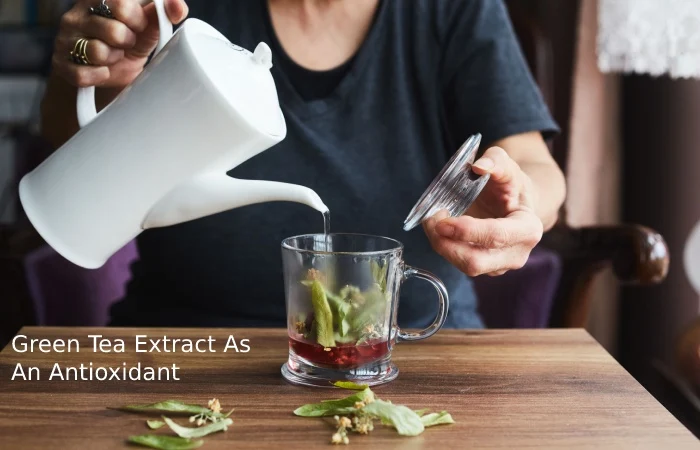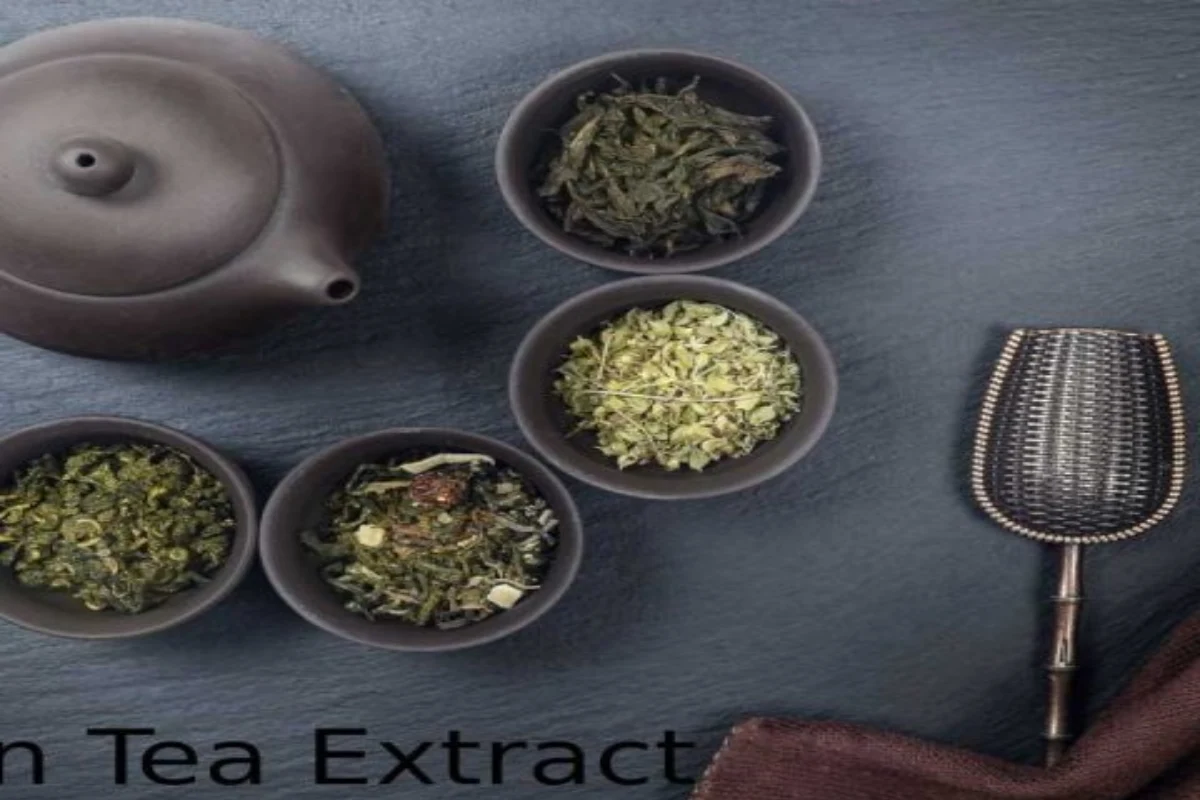Green Tea Extract – Green tea is enjoyed around the world as a popular hot and cold drink, accounting for approximately 20% of all tea consumed worldwide. Processed primarily in the Middle East from the leaves of the Camellia sinensis plant, it is credited with numerous health benefits. Green tea has anti-carcinogenic, anti-inflammatory, antioxidant, and antimicrobial effects, among other things, as multiple epidemiological observations have shown.
Table of Contents
Chemical Components Of Green Tea
Green tea is made up of a variety of chemo effects al compounds. In addition to many amino acids, trace elements such as magnesium or calcium, plant sterols (natural substances from the group of steroids), linoleic acid, and α-linolenic acid are included. Vitamins such as vitamin B2, B3, and E are also included.
The numerous positive effects are due to the main component of green tea: catechins. Catechins are among the active flavonoids, making up about 60-80% of all polyphenols (chemically unique structures). The most important and biologically active component of green tea is the polyphenol epigallocatechin-3-gallate. Other relevant components of green tea are caffeine, organic acids, proteins, chlorophyll, and theanine.
A woman in a white dress holds a straw hat in her right hand and brushes through green tea leaves with her left hand.
Effect Of Green Tea Extract And Its Application In Dermatology
The numerous positive effects of green tea are mainly due to the polyphenol epigallocatechin-3-gallate. It binds directly to various receptors and signaling molecules.
Green Tea Extract As An Antioxidant

Oxidative reactions of the skin under the influence of free radicals and reactive oxygen species (ROS) are associated with cellular damage ( oxidative stress ) associated with inflammation, photodamage, cancer, and skin aging. The green tea polyphenols influence the position of electrons, intercept a wide variety of reactive oxygen species or form molecular complexes with metal ions. In summary, oxidative stress is involved in developing numerous skin diseases that green tea extracts can counteract.
The Light Protection Effect
The polyphenols in green tea extract block the harmful effects of UV light. In addition, they have a photoprotective effect. It counteracts the development of sunburn, UV-induced suppression of the immune system, and photoaging. As a result, the risk of developing skin cancer is also reduced.
The sun protection effect of green tea extracts unfolds via a series of cellular, molecular and biochemical mechanisms. The topical application of green tea extracts to human skin produces photoprotective results by reducing UV-induced skin redness and reducing the number of sun-damaged cells and DNA while increasing the number of surviving Langerhans cells (skin’s immune system cells).
Available data indicate that green tea’s active ingredients are highly effective in preventing UV damage to the skin.
Green Tea Extract And Inflammatory Skin Diseases
Green tea phenols also have an antimicrobial and anti-inflammatory effect through targeted effects on cells or cellular interactions in the skin and the skin microbiome. In addition, the topical application of green tea extracts has been shown to increase the concentration of green tea phenols in the skin, making it less sensitive to external influences.
Rosacea And Acne
In addition to its antioxidant and photoprotective properties, green tea extract has anti-inflammatory and antimicrobial effects. These are due, among other things, to the lipids linoleic acid and a-linolenic acid contained, as well as the flavorings. Furthermore, it counteracts the development. Above all, the acne bacterium acnes, a factor involved in the development of acne, reacts sensitively to aromatic substances. So that pimples can be counteracted in a targeted manner. In addition, the typical greasy shine of acne can be reduced by the sebum-regulating properties.
Conclusion
Green tea extracts also have a regulatory effect on anti-inflammatory cytokines and activate skin cells during wound healing. It is also a significant positive effect of green tea extracts on acne and pimples.

